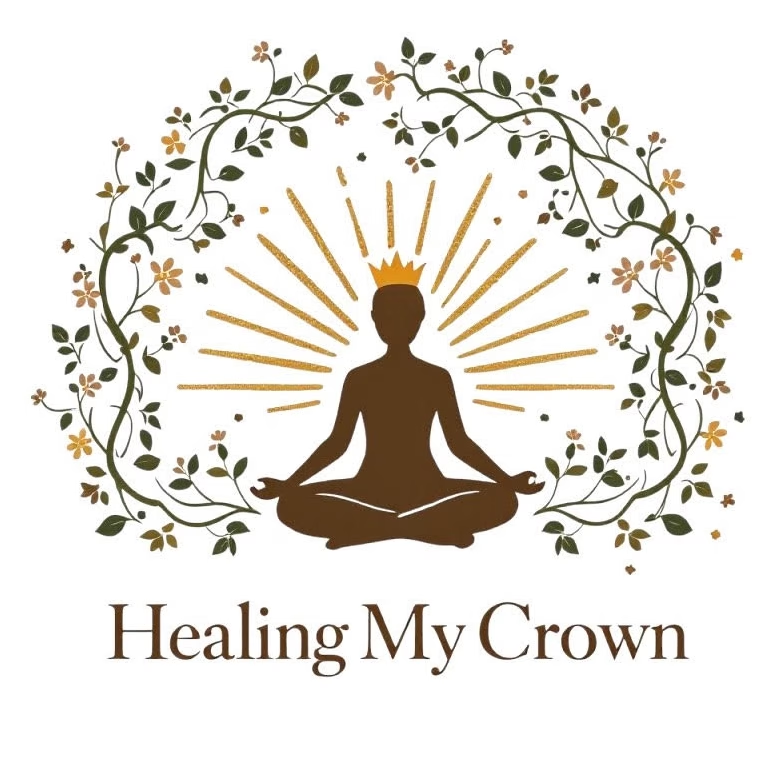Hey beautiful!
Before we dive in, I just wanted to check in. How are you really feeling? Like—not the “I’m fine” version—but the truth behind the smile.
If you’ve been feeling emotionally heavy, constantly “on,” or like you’re always the strong one holding it together… this post is especially for you. I see you, and I wrote this with love, honesty, and healing in mind.
Let’s talk about it.
“You’re so strong.”
Those three words often sound like praise. But for many women, they feel more like a quiet pressure to keep going—even when they’re exhausted.
Whether you’re a caregiver, a high-achiever, the family’s emotional anchor, or all of the above, it’s easy to fall into the trap of always showing up for others while ignoring your own needs.
If you’ve ever found yourself thinking:
“I can’t fall apart—everyone’s counting on me,”
this post is for you.
Let’s talk about what emotional burnout looks like in women, why it often goes unnoticed, and—most importantly—how you can begin to heal.

💡 What Is Emotional Burnout?
Emotional burnout is more than just being tired. It’s a deep, chronic state of mental, emotional, and physical exhaustion—often caused by long-term stress, emotional labor, and the pressure to be everything for everyone.
It can happen gradually, especially when you’re juggling roles without consistent support or time to rest.
🔥 Signs You May Be Emotionally Burned Out
You might be experiencing emotional burnout if:
- You wake up tired, no matter how much you sleep
- You feel emotionally numb, irritable, or like you’re “just going through the motions”
- You’re always busy, but never feel accomplished
- You have trouble focusing or remembering things
- You feel guilty for resting, saying no, or asking for help
- You feel disconnected from joy—even during things you used to love
If you’ve been feeling drained or burnt out and can’t quite explain why, you’re not alone. Emotional burnout often sneaks in slowly—through sleepless nights, irritability, or that constant sense of overwhelm that just won’t go away. In this post, I dive deeper into what burnout really looks like and how to begin reclaiming your energy when it feels like there’s nothing left to give. Read more here →
💬 Why Women Often Ignore Burnout
There’s a cultural narrative—especially in modern womanhood—that tells us:
- “Strong women don’t complain.”
- “You just have to push through.”
- “You can rest when everything’s done.”
But the truth is, everything will never be done—and if you keep sacrificing your peace and well-being for others, you’ll burn out before you can truly live.
Strength isn’t about suffering in silence.
It’s about knowing when to pause, protect your peace, and prioritize your healing.
🌱 How to Begin Healing from Emotional Burnout
You don’t need a full life overhaul to begin healing—you need intentional steps that nourish your mind, body, and spirit.
Here are five powerful places to start:
1. Acknowledge That You’re Not Okay—And That’s Okay
Healing starts with honesty. Say it out loud:
“I’m tired. I need help. I can’t do this all.”
There is strength in your vulnerability.
2. Set Boundaries That Prioritize Your Energy
You don’t owe everyone access to your time, emotions, or energy.
Start small:
- Say “no” without overexplaining
- Block off time for just you
- Use auto-replies, silence notifications, and create space from draining environments
Healing from emotional burnout isn’t about fixing everything at once—it’s about learning to prioritize your mental health in small, meaningful ways. Whether it’s limiting your to-do list, choosing silence over noise, or simply resting without guilt, your well-being has to come first. If you’re not sure where to begin, this post offers simple steps to start centering your mental and emotional needs. Explore it here →.
3. Reclaim Rest Without Guilt
Rest is not a reward—it’s a requirement.
Make rest a ritual:
- Take short mental health breaks daily
- Practice stillness (journaling, meditating, or even quiet walks)
- Redefine productivity to include rest and recovery
4. Ask for Help—Even When It Feels Unnatural
It’s okay to say, “I can’t do this alone.”
That could look like:
- Reaching out to a friend for support
- Talking to a therapist or coach
- Delegating tasks, even if they don’t get done perfectly
Let people show up for you, too.
5. Create a Safe Space for Self-Healing
Whether it’s a corner of your home, a morning playlist, or a warm bath with your journal—carve out space to just be.
You need a soft place to land after carrying so much.
✨ A Gentle Reminder
You are more than what you do.
You are more than who you care for.
You are more than your ability to “keep it together.”
Your softness matters. Your rest matters.
You deserve to be held, not just to hold.
📥 Ready to Take Your Power Back?
Download your free guide:
👉 Boundaries & Balance Workbook: How to Say No Without Guilt
This self-guided workbook is packed with practical tools to help you reclaim your time, protect your peace, and say no without guilt.
💌 Let’s Stay Connected
I created Healing My Crown as a space for women to breathe, release, and grow. Whether you’re just starting your healing journey or deep in transformation, you’re welcome here.
Follow and connect with me on social media for daily encouragement:
- 🌿 Instagram: @healingmycrown
- 💬 Facebook: I’m now on Facebook! Join the conversation → Healing My Crown on Facebook
- 📌 Pinterest: @healingmycrown
💖 You don’t have to carry it all.
Together, we’re unlearning the pressure to be strong and replacing it with the permission to be whole.

With love,
Jamiah
Healing My Crown
